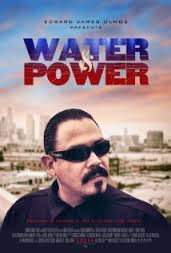
In the film entitled “Water and Power” Senator Enrique Murciano known as (Water) and LAPD policeman Imdb Nicolas Gonzalez known as (Power) both find themselves in the midst of a shakedown in the criminal underworld of Los Angeles. Water and Power happens to be the nicknames of the two Latino brothers who both climb the ranks to success in Los Angeles. However, their success came with a price which ended up being responsible for the suicide of one brother. Their father who worked for the Department of Water and Power once told them as young boys, quote “nothing is consistent in Los Angeles but the river”. Symbolically speaking, could it be possible that their father was warning them that everything has the ability to change except water and power? Think about it, a river never stops flowing, neither does water and power who could not exist without the other.
Many Latina/o films fall into the genre of exploitation. For instance, Latin/o/a film directors began to create movies that captures the lives of Latino/a communities in East Los Angeles; and whether the stories were fictional or non-fictional several were filmed in East Los Angeles which has been know for gang violence. In Latin/o/a cinema, many films contained sex, violence and romance which in part describes the term “Mexploitation” in Latin/o/a cinema. Exploitation films can be described as films that were primarily for economic purposes with the expectations of success by exploiting a trend. For example, in the film “Machete”, directors used political scandals, bribery and police corruption which mirror the generic conventions of exploitation in film. According to the article entitled “The Border Crossed Us Here”, writer Zachary Ingle affirms that many Latina/o films have stereotypical plots usually centered around drug trafficking, scandal or corruption. In “Machete” Director Robert Rodriguez conventionally provides a film surrounding immigration, political compromise, sex and corruption fitting the genre of Mexploitation.
Gang violence mixed with police corruption is no stranger to the streets of Los Angeles and once again the plot in the movie “Water and Power” highlights this truth. Nicholas Gonzalez who plays the role of Power, finds himself in hot water because of his use of drugs and the compromises he establishes with drug dealers. His inability to handle power becomes the basis for a dangerous web of corruption that spun out of control. Both brothers realized that something within their careers went terribly wrong as they faced the complexity and corruption that came along with their personal success and power. another example of film in Latin cinema that touches on exploitation is the movie entitled “Zoot Suit”. In Zoot Suit, director Luis Valdez uses a character named “Pachuco” to help identify and outline Hank’s (main character) sub-conscious; Hank was fighting for identity and acceptance in a hegemonic society. Once again, Zoot Suit, Water and Power, and West Side Story all share common themes surrounding identity, crime, and corruption.
The movie Water and Power depicts how Latina/o films portray two brothers. Both brothers were public role models who soon learn they have to answer to much bigger fixers and powerful leaders in the city. In many Latina/o films, whites are casts as ones having the money and power along with self-interests. Water and Power is well directed by Richard Montoya who was also the co-producer of the film. After watching the film I can basically see how power where corruption is involved can be the downfall of success. This was the case for two Latino brothers who grew up on the East side of Los Angeles.
Unfortunately their success came to a tragic end, as one brother commits suicide after realizing he was engulfed in the middle of a complex underworld combined with drugs. His brother, the “Senator” Enrique Murciano tried everything to save his brother, but it was too late. For example, “Water” went to his superiors asking for help. His intentions were to get help for his brother hoping to spare him from further trouble. Ironically, instead of getting the help he needed for his brother, “Water” was forced to get on his knees and wash the feet of his superior. The movie exploits two Chicano brothers whose characters are corrupted by sex, greed, and violence. The film also suggests how stereotypes in Latino/a cinema continue to convey sublime messages of corruption and negativity for Latin/o people. For instance, in the end, drugs and corruption basically destroys “Power’s” Imdb Nicolas Gonzalez ability to reason and his desire to live.
Twitter @boyd_annielois3
